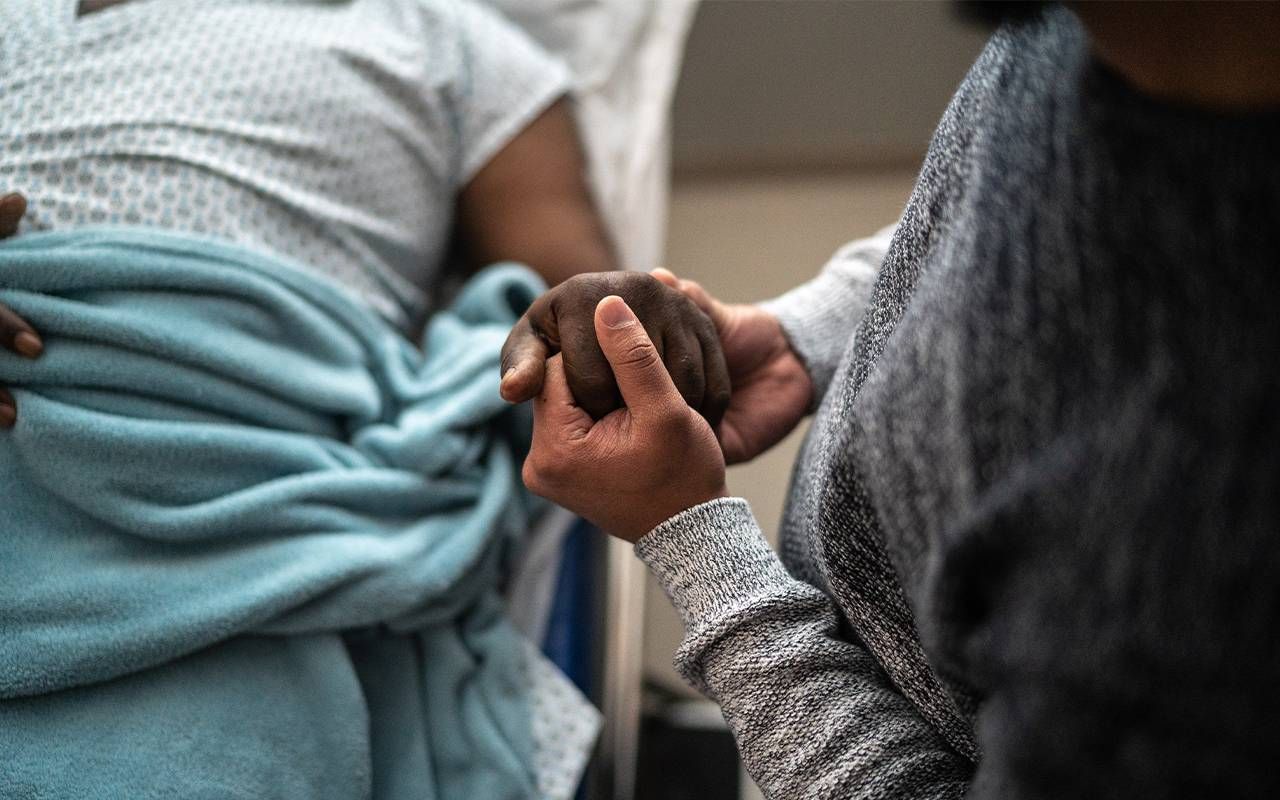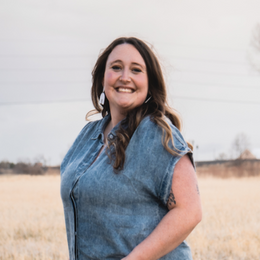How to Advocate for Your Hospitalized Loved One with Parkinson's Disease
From proper hygiene to early mobility, there are ways to help prevent hospital-related complications
Parkinson's disease (PD) is a neurological disorder affecting some older adults, causing tremors and difficulty with coordination. PD eventually worsens with time, leading individuals to struggle with communication, walking and caring for themselves.

In addition, many develop behavioral changes such as impulsivity, memory problems, and in severe cases, psychosis. According to the Parkinson's Foundation, nearly ten million people live with Parkinson's disease worldwide, and 60,000 people are diagnosed yearly.
Nearly ten million people live with Parkinson's disease worldwide, and 60,000 people are diagnosed yearly.
Most patients diagnosed with PD will eventually require full-time care as their disease progresses and they become less independent. Therefore, adult children of PD patients are most commonly in caretaking roles, managing medications, helping with feeding, dressing, bathing and acting as medical advocates.
Similarly, research has shown that individuals with Parkinson's are hospitalized at a much higher rate than older adults without PD due to complications from the disease. They are also at an increased risk for hospital-related complications such as pneumonia, skin breakdown and confusion — all of which can be preventable.
As a caregiver, you have an essential role in advocating for your loved one with Parkinson's disease. Here's a list of ways you can help ensure they receive the best possible care in the hospital, while also promoting a speedy recovery:
Delirium Prevention
Being hospitalized brings new challenges to your loved one with Parkinson's. Besides feeling unwell, sleep can be challenging, too. It's louder than at home, there are frequent interruptions during all hours of the day, and medication timing might be an issue.
All these changes in routine can cause hospital-acquired delirium, a short-term change in memory, personality, and mood directly related to lack of sleep in the hospital. In rare cases, delirium might cause permanent cognitive damage, leading to decline in patients who are already weak and increasing future hospitalizations.
As a caregiver, you can support your loved one by assuring they get the sleep they need while hospitalized. Even if you cannot spend the night at the facility with them, you can call and talk with nursing staff. You might request that the nurses minimize unnecessary distractions during the night, keep the room dark and the television off, and talk quietly around the patient's room.
When Good Hygiene Can Lead To Shorter Hospitalization
Parkinson's patients are at risk for more prolonged hospitalizations from hospital-related complications. However, many of these difficulties are preventable through basic hygiene.
Early mobility reduces the length of a patient's hospitalization and minimizes the risk of pneumonia and delirium.
As a caregiver, you can help busy nursing staff care for your loved one to meet these needs. For instance, thorough and frequent oral hygiene is directly responsible for reducing the risk of aspiration pneumonia (one of the leading causes of death in PD patients caused by dysphagia).
Likewise, you can brush your loved one's teeth or clean their mouth with hospital-provided swabs to remove dangerous bacteria that contribute to pneumonia.
Extra moisture, drooling, and skin changes often accompany Parkinson's disease. These changes are usually from medication side effects, dysphagia, weakness and inactivity.
Drooling can become a problem if uncared for since moisture can gather under the chin and neck, causing irritation and yeast to grow.
Caretakers of PD patients can place a cloth under the neck to dry any drooling, avoid heavily scented soaps or detergents on the skin, and clean the face regularly with warm water.
You can also talk with nursing staff to request lotion, lip balm, or antifungal powder to help your loved one feel more comfortable.
Move and Groove
Early mobility reduces the length of a patient's hospitalization and minimizes the risk of pneumonia and delirium and the chances of future readmission.
You can help with early mobility by assisting your loved ones in moving their arms and legs. Even if they lack strength, you can practice a passive range of motion by lifting and extending arm and leg joints. Parkinson's disease causes rigid muscles, decreased movement and general frailty as the disease progresses — putting patients at high risk of developing a pressure ulcer from lying in bed.
If your loved one is hospitalized, they must be turned at least every two hours to relieve pressure on their lower back and buttocks. Pressure ulcers that develop from inactivity can cause infection, delay healing, and extended hospitalization.
As a caretaker, you can champion your loved one to guarantee they are turned and repositioned frequently. Then, depending on your loved one's mobility, you can tuck a pillow or foam wedge under one side.
Don't be afraid to speak up and ask a hospital staff member to help you turn them if you need help. If you notice they haven't been turned recently, or they've been lying on their back for longer than two hours — say something.
A nurse must ensure repositioning happens, but you can kindly remind them if it hasn't been done and even offer to help.
Medication Management Is Essential
Arguably, proper medication management is the most critical aspect of a successful hospitalization for someone with PD.
Unfortunately, recent studies have shown that three out of every four hospitalized PD patients did not receive their regular home medications on time or had doses entirely skipped.
Proper medication management is the most critical aspect of a successful hospitalization for someone with PD.
Antiparkinson medications (levodopa or amantadine, for example) must be given correctly, at the right time, and in the correct dose.
If regular home medications are not provided in the hospital, PD patients can develop mental disturbances, increased muscle rigidity, tremors, and difficulty communicating. As a caretaker, you play an invaluable role in helping the transition from home to hospital run smoothly.
Some ways you can do this are as follows:
- Make sure you have an up-to-date list of medications your loved one takes. This list must include the name, dose, when it was last taken, and what pharmacy is used for prescriptions. Then, be prepared to give this to the hospital staff when requested.
- In an addendum to the list of medications, compile a list of drug or food allergies, including reactions. For example, did a particular drug cause severe irritability or a rash in the past?
- Stay with your loved one when they arrive at the hospital until the first dose of their regular medication is administered. Frequently, the first dose can be stalled by several hours if the nurse needs to input the medication list into the chart immediately, or if the hospital pharmacy is delayed in verifying the orders. Nonetheless, after the first dose is given, future quantities are more likely to be on schedule.
Speaking Up
Cooperate with nursing staff to ensure your loved one is comfortable. Be direct, yet kind, in asking when the patient might need personal hygiene supplies, a quieter environment, or on-time medication.
As a caretaker, your education and experience regarding Parkinson's are powerful tools. Things might fall through the cracks in a busy hospital– and you know the patient best. So don't be afraid to speak up and express your needs as you advocate for your loved one.


